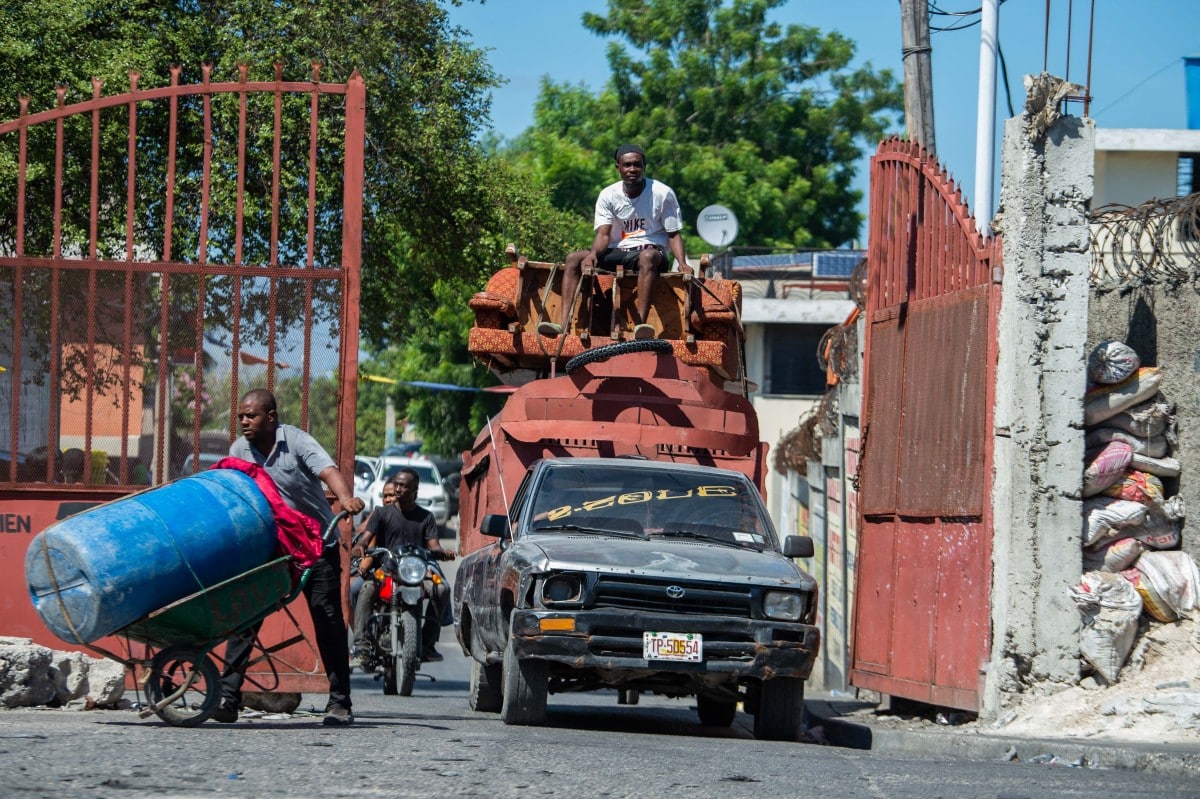

People flee their neighborhood after armed gangs terrorized the Delmas 24 and Solino areas in Port-au-Prince on October 26, 2024. Agence France-Presse
UNITED NATIONS — Haiti’s powerful gangs are digging trenches, using drones and stockpiling weapons as they change tactics to confront the Kenyan-led police force deployed to wrestle back government control, a UN report said Monday.
The annual report said violence had spiked with more than 3,600 homicides and 1,100 kidnappings between January and June, and 85 percent of the capital Port-au-Prince now ruled by the gangs.
Article continues after this advertisementGang leaders have strengthened defenses for the zones they control and placed gas cylinders and Molotov cocktail bombs ready to use against police operations.
FEATURED STORIES GLOBALNATION Government starts sending aid and spearheading rescue operations for Bicol GLOBALNATION Meet Luce, Vatican’s first-ever mascot GLOBALNATION Misrepresentation rap vs GuoREAD: Haiti gangs ‘aren’t even worried’ by Kenyan police
“To intimidate security forces, gangs have broadcast videos showing the weapons and ammunition that they have recently acquired” despite an arms embargo being strengthened, the report said.
Article continues after this advertisementHuman shields are another new tactic, with civilians prevented from evacuating, trapped in their homes and killed if they try to escape.
Article continues after this advertisementHaiti has for years been beset by political, humanitarian and security crises, but its situation degenerated this year when armed gangs launched coordinated attacks and forced the prime minister to resign.
Article continues after this advertisementREAD: UN Security Council expands Haiti arms embargo
A UN-backed international support mission has been launched to prop up Haiti’s police force, though it has yet to reach its intended size.
Article continues after this advertisementThe report said an alliance between several gangs was largely holding, but one notorious gang leader, Jimmy Cherizier, known as Barbeque, had lost influence.
It also noted gangs were recruiting child soldiers and expanding territory to increase revenue from kidnappings, extortion and drug trafficking.
Subscribe to our daily newsletter